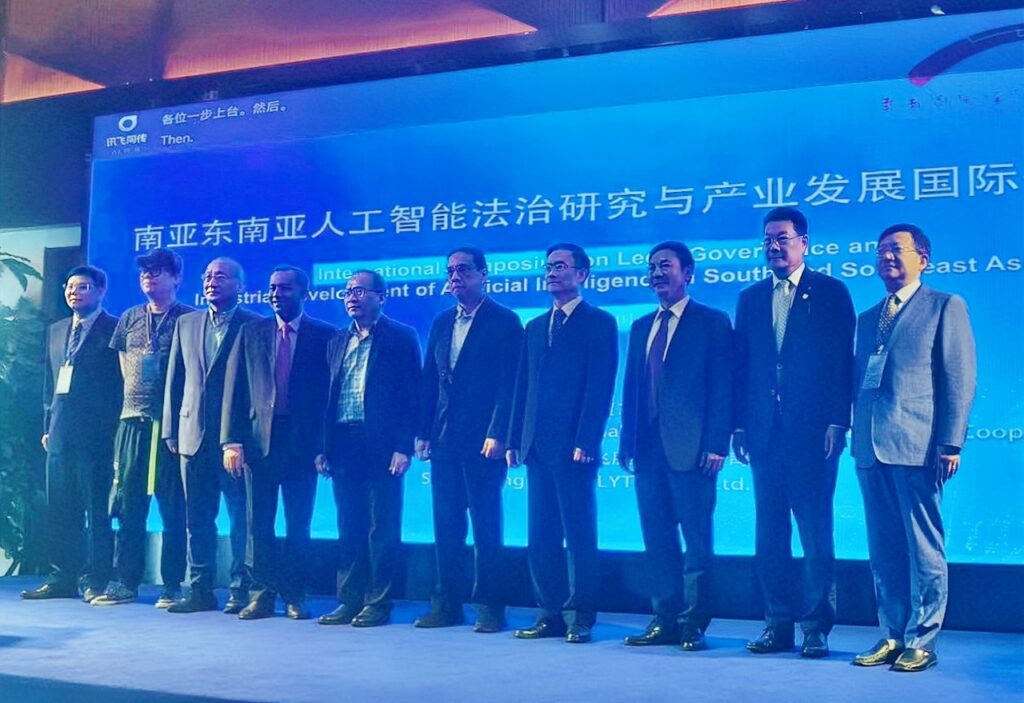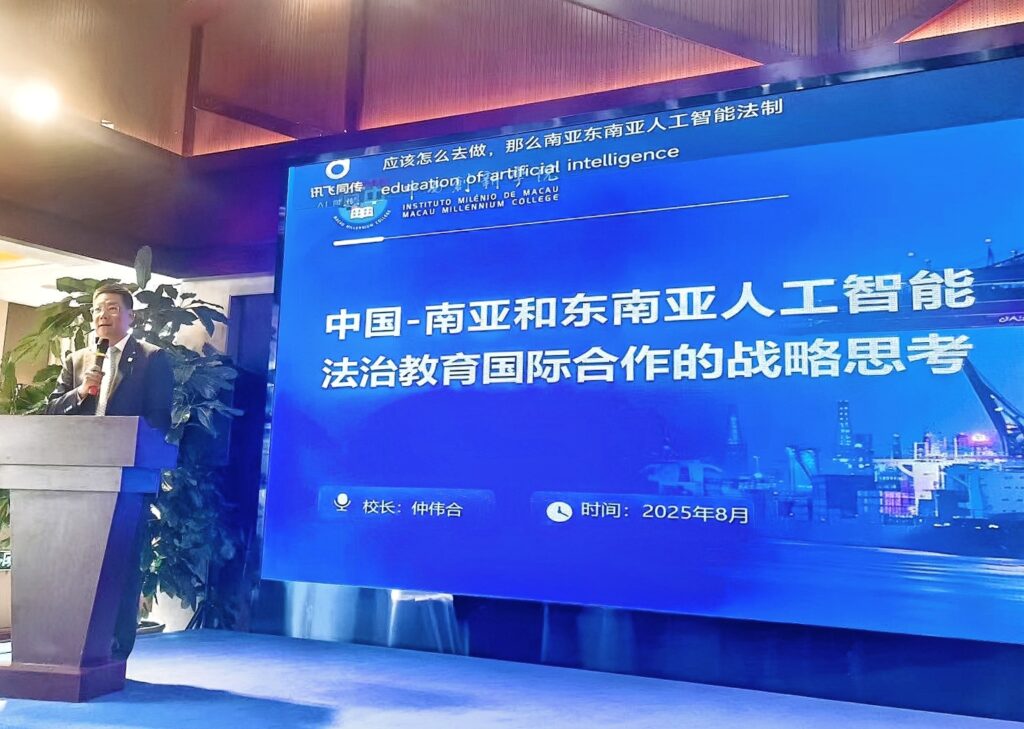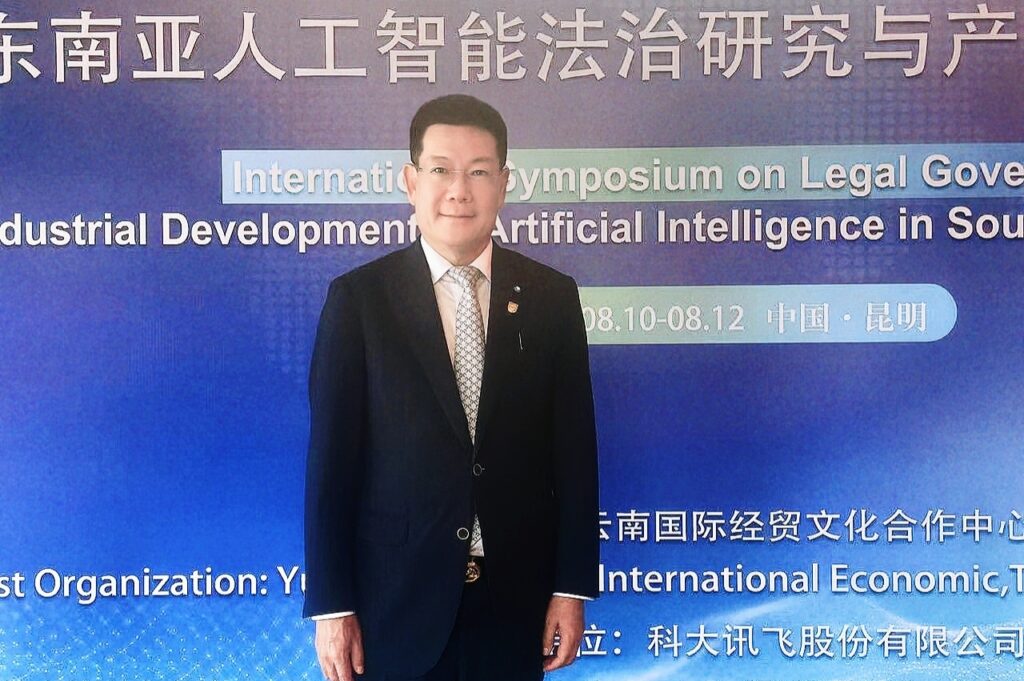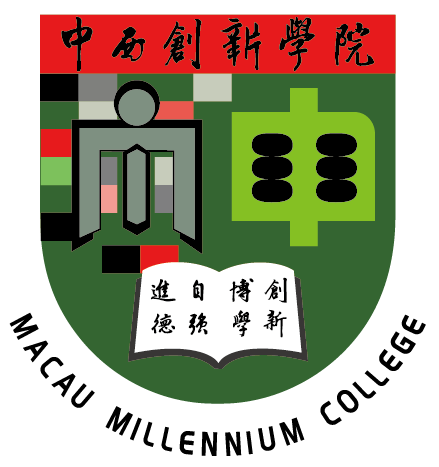Rector Zhong Weihe Participates in the Founding of the Alliance on Legal Governance and Industrial Development of Artificial Intelligence in South and Southeast Asia
On 11 August 2025, the International Symposium on Legal Governance and Industrial Development of Artificial Intelligence in South and Southeast Asia was grandly held in Kunming, Yunnan. The Symposium was organised by the Yunnan Centre for International Economic and Trade, and Cultural Cooperation, with support from iFlytek Co., Ltd. Experts, scholars, government officials, and business representatives from over 30 countries in China, South Asia, and Southeast Asia gathered to discuss in depth the legal governance and industrial development of artificial intelligence (AI). At the Symposium, the Alliance on Legal Governance and Industrial Development of Artificial Intelligence in South and Southeast Asia was established, and Macau Millennium College (“MMC”) was elected as a founding council member.

Professor Zhong Weihe, Rector of MMC, delivered a keynote speech at the Symposium. He emphasised that global governance of AI is a “chorus” of regional cooperation, not a “solo” of a single country. As key institutions for training future governors and innovators, universities must use international cooperation as a bridge to strengthen AI-related legal governance literacy and skills development.

He proposed five specific suggestions: First, build a “Dual-Track Training System of Multinational Joint Laboratories and Legal Governance Practice Stations” to integrate technical training in labs with understanding rules at practice stations. Second, implement an “Empowerment Mechanism of Youth Scholar Exchanges Projects”, launch the “AI Regional Governance Young Leaders Programme”, and establish a “Three-Month Rotation Exchange System” to cultivate students’ cross-disciplinary thinking. Third, establish a “Regional Certification System for Legal Governance Literacy” aligned with industry demand. Fourth, build a regional adaptive training module for cultural ethics embedded in the legal governance of AI, develop interdisciplinary courses, and cultivate students’ ability to balance the rigidity of legal governance with cultural flexibility. Fifth, establish a “Digitally Inclusive AI Compliance Empowerment Network”, set up “AI Compliance Mobile Service Stations” in industry clusters, and develop multilingual “Compliance Self-check Toolkits” to deepen students’ understanding of “Technological Justice” through practical experience.

Additionally, Professor Wang Lifei proposed to build a China-South and Southeast Asia Language Data Governance Community, leveraging the New Western Land–Sea Corridor to promote regional language data technology sharing and cooperation. The Symposium also reviewed and passed the Alliance’s Charter and released the Kunming Declaration, creating an important platform for cooperation between China and South and Southeast Asia in legal governance research and industrial development of AI.




